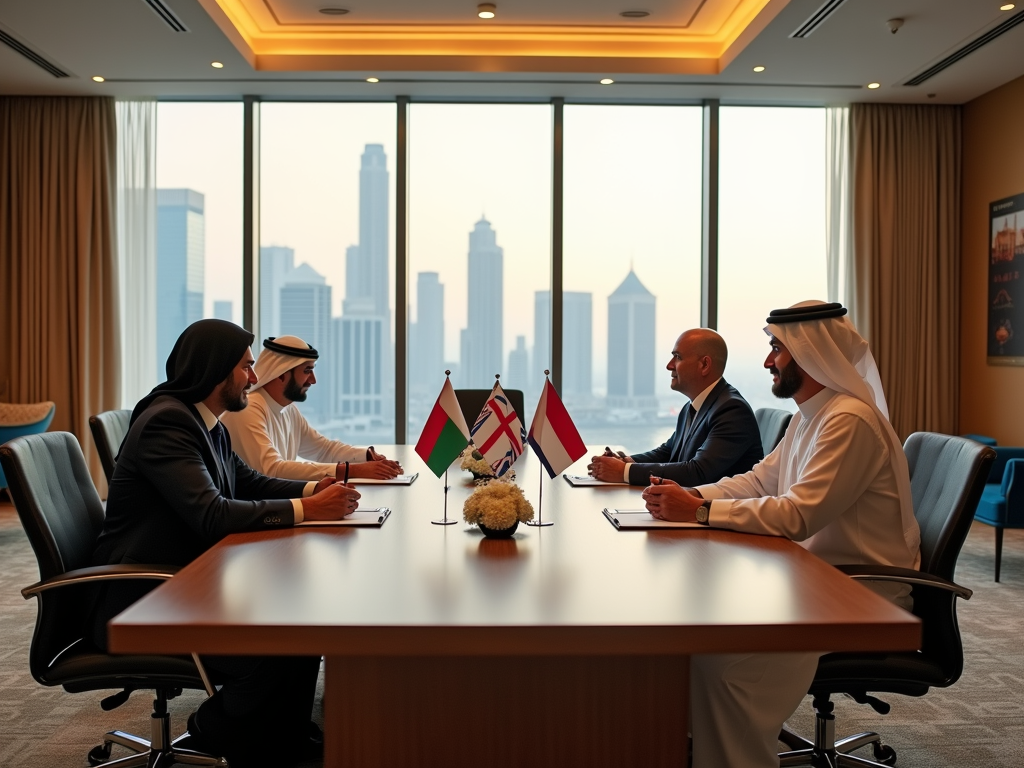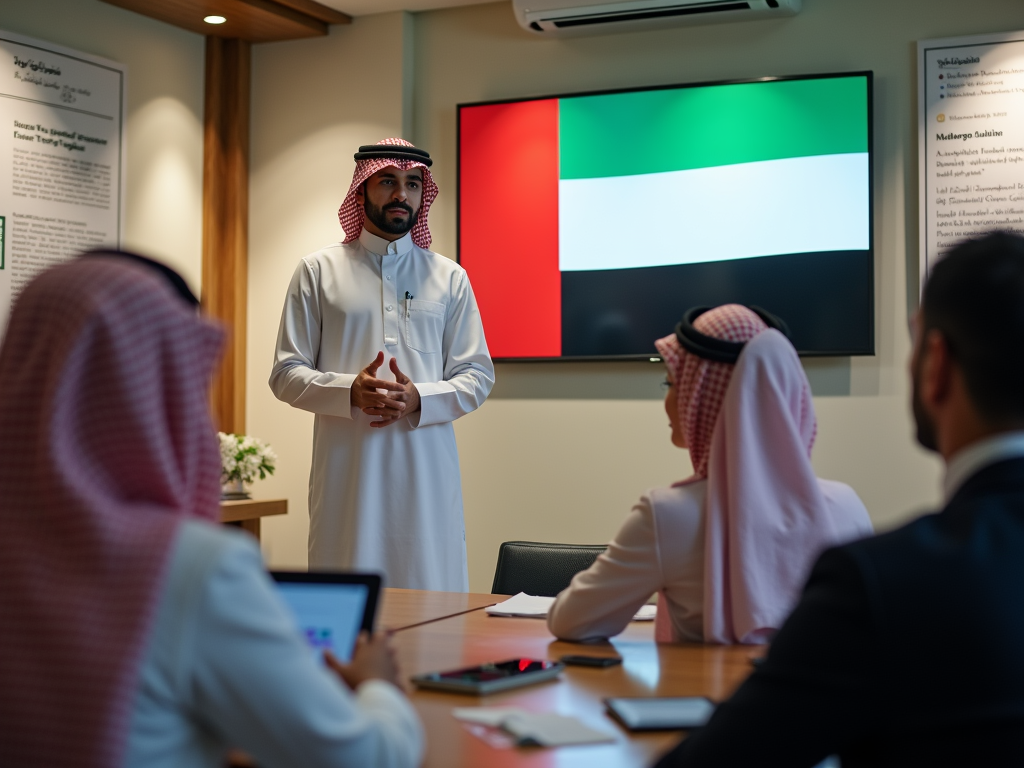The Role of Dubai’s Trade Agreements in Attracting Global Businesses
Dubai’s strategic trade agreements have positioned it as a pivotal hub for global commerce. These agreements are instrumental in reducing trade barriers, fostering economic partnerships, and creating a competitive environment for businesses worldwide. As a result, numerous companies are drawn to the city, attracted by its favorable business climate and accessibility to expansive markets. In this article, we will explore how Dubai’s trade agreements promote economic growth and encourage global business investment, ultimately solidifying its status as a leading trade center in the Middle East.
Understanding the Basics of Dubai’s Trade Agreements

Trade agreements are crucial instruments that govern trade practices between countries. In the context of Dubai, these agreements play a significant role in promoting trade by simplifying customs procedures, reducing tariffs, and liberalizing markets. The UAE has signed numerous bilateral and multilateral trade agreements, which enhance the ease of doing business and attract foreign investments. Here are key aspects of Dubai’s trade agreements:
- Reduction of Tariffs: Trade agreements often result in lower import duties, making it more cost-effective for businesses to operate in the region.
- Market Access: These agreements open doors to various markets, allowing businesses to expand their reach into new territories seamlessly.
- Investment Protection: Many agreements include provisions that protect foreign investments, offering assurances that enhance investor confidence.
- Regulatory Harmonization: Trade agreements often lead to standardized regulations, simplifying compliance for international businesses.
- Enhanced Supply Chains: By facilitating smoother trade operations, businesses can optimize their supply chains, leading to increased efficiency.
Dubai hosts several Free Trade Zones (FTZs), which are integral to its trade agreements. These zones offer unique benefits that make them attractive to businesses looking to tap into the Middle East and beyond. The presence of FTZs fosters a conducive environment for companies to set up operations without the usual bureaucratic hurdles. Key features of Dubai’s FTZs include:
- 100% Foreign Ownership: Investors can fully own their businesses without the need for a local partner.
- No Income Tax: Many FTZs have tax incentives, including zero corporate tax for a specified period, enhancing profitability.
- Easy Repatriation of Profits: Companies can repatriate their earnings without restrictions, making it financially attractive.
- Streamlined Business Setup: Setup processes in FTZs are often faster, minimizing downtime and allowing quicker market entry.
- Diverse Business Structures: Businesses can choose from various legal structures, catering to diverse operational needs.
The Influence of Bilateral Trade Agreements

Dubai has entered into numerous bilateral trade agreements with countries worldwide, significantly influencing its ability to attract global businesses. These agreements enable Dubai to enhance trade relations, boost economic growth, and diversify its market access. Here are key benefits these agreements bring:
- Increased Export Opportunities: Companies in Dubai gain greater access to markets in partner countries, facilitating export growth.
- Customer Diversification: By tapping into new markets, businesses mitigate risks associated with reliance on a limited customer base.
- Strategic Partnerships: Bilateral agreements encourage collaboration between businesses, enhancing innovation and competitiveness.
- Sharing of Resources: Agreements often lead to resource sharing, providing access to technology, expertise, and talents from partner nations.
- Fostering Regional Stability: Strong trade ties can promote mutual understanding and cooperation, contributing to overall regional stability.
The Future of Trade Agreements and Business Opportunities in Dubai
Looking ahead, the future of trade agreements in Dubai appears promising. As the global economy evolves, so too will the nature of trade agreements. Dubai is likely to continue its proactive approach by negotiating new agreements tailored to emerging markets and industries. This adaptability creates unparalleled business opportunities, especially in sectors such as technology, sustainability, and healthcare. With ongoing investment in infrastructure and technology, Dubai remains focused on enhancing its appeal to global businesses. The potential for growth is further bolstered by:
- Continuous Innovation: Embracing new technologies and practices to streamline trade and business operations.
- Sustainability Initiatives: Developing green business practices to attract environmentally conscious investors.
- Global Economic Integration: Increasing efforts to align with international standards, further enhancing competitiveness.
- Networking and Trade Missions: Active participation in international trade events to build connections and showcase Dubai’s potential.
- Focus on Digital Trade: Adapting to the digital marketplace to remain relevant in handling global trade.
Conclusion
In conclusion, Dubai’s trade agreements play a crucial role in attracting global businesses, contributing to the city’s status as a premier trade hub. These agreements enhance market access, reduce operational costs, and foster economic growth by promoting foreign investment and collaborative opportunities. By continuously adapting and exploring new trade relations, Dubai is set to maintain its competitive edge and provide an environment conducive to business success.
Frequently Asked Questions
1. What are the main types of trade agreements that Dubai is involved in?
Dubai is involved in bilateral and multilateral trade agreements, which help to reduce tariffs and simplify trade regulations with partner countries.
2. How do Free Trade Zones benefit businesses in Dubai?
Free Trade Zones in Dubai allow 100% foreign ownership, tax exemptions, easy profit repatriation, and streamlined business setup processes.
3. What sectors are most attracted to Dubai due to its trade agreements?
Key sectors include technology, logistics, healthcare, and renewable energy, all benefiting from Dubai’s strategic trade agreements.
4. Are there any incentives for companies establishing operations in Dubai?
Yes, companies can benefit from no corporate tax for a specified period and various financial incentives offered in Free Trade Zones.
5. How does Dubai support businesses in adapting to new trade agreements?
Dubai provides support through government initiatives, business networking events, and resources for navigating compliance and market entry strategies.







